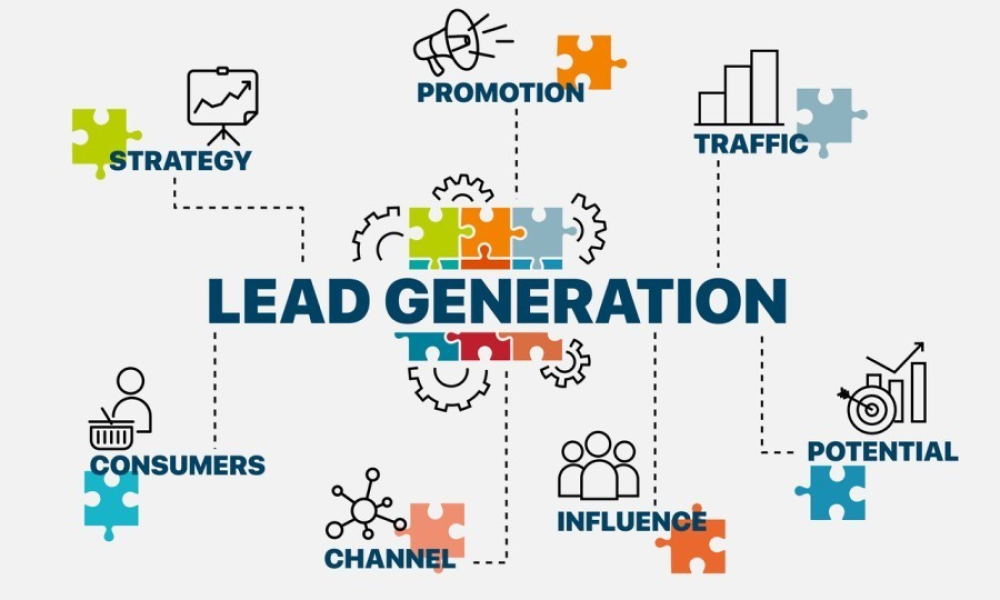Small businesses are the backbone of thriving economies, and in dynamic cities like New York City, San Francisco, Los Angeles, Chicago, Dublin (Ohio), and New Haven (Connecticut), the ability to generate effective leads is vital for survival and growth. This guide explores how small businesses in these bustling cities can optimize lead generation to attract and convert potential customers, ultimately ensuring long-term success.
Understanding Lead Generation
Lead generation is the process of identifying and cultivating interest in a business’s products or services, ultimately converting interested individuals into customers. It is not just a strategy but a lifeline for small businesses aiming to scale their operations effectively.
Why Is Lead Generation Important?
- Increases Sales: By attracting qualified prospects, businesses enhance their chances of closing deals.
- Boosts Brand Visibility: Continuous engagement with potential leads ensures that your brand remains top-of-mind.
- Fosters Trust: Building relationships with leads creates credibility and increases customer loyalty.
In competitive markets, lead generation bridges the gap between a business and its audience. Without it, even the best products and services may remain undiscovered.
Challenges Faced by Small Businesses in Lead Generation
Small businesses often operate with tight budgets and limited manpower, making it challenging to execute large-scale lead generation campaigns.
High Competition
In cities like New York and San Francisco, competition is fierce. Standing out requires creativity, precision targeting, and consistent effort.
Identifying Quality Leads
Not all leads are created equal. Many businesses struggle to differentiate between high-potential leads and those unlikely to convert, leading to wasted resources.
Understanding these challenges is the first step toward overcoming them with targeted strategies and tools.
Proven Strategies for Effective Lead Generation

Optimize Your Website
Your website is often the first interaction potential customers have with your brand. Ensure it makes a great impression.
- User-Friendly Design: Simplify navigation and ensure the website is mobile-responsive.
- Clear Call-to-Actions (CTAs): Use strong CTAs like “Get a Free Quote” or “Schedule a Consultation” to guide visitors.
- Landing Pages: Create campaign-specific landing pages tailored to the needs of your audience.
Leverage Content Marketing
Content marketing is a powerful way to attract and engage leads. Informative, high-quality content helps establish authority in your industry.
- Blogging: Regular blog posts addressing common customer pain points can drive traffic and generate leads.
- E-books and Whitepapers: Offer free resources in exchange for contact details, building your email list.
- Webinars and Videos: Host interactive sessions or create videos to explain your products and services comprehensively.
Implement Search Engine Optimization (SEO)
SEO helps your business get discovered by people actively searching for your services.
- Keyword Research: Identify local and long-tail keywords related to your business and target cities (e.g., “lead generation services New York City”).
- On-Page SEO: Optimize titles, meta descriptions, and headers to rank higher in search engines.
- Local SEO: Create a Google My Business profile and gather customer reviews to enhance local search rankings.
Engage on Social Media
Social media platforms are an excellent channel for connecting with your audience and generating leads.
- Engage with Followers: Respond to comments, participate in discussions, and create polls to spark interaction.
- Promote Valuable Content: Share blog posts, videos, and testimonials to attract attention.
- Social Media Ads: Run targeted ads to reach specific demographics, especially in competitive locations like Chicago and Los Angeles.
Build an Email Marketing Strategy
Email marketing remains one of the most effective lead generation tools.
- Grow Your Email List: Use website forms and social media campaigns to collect email addresses.
- Segment and Personalize: Tailor emails based on customer behavior and preferences.
- Automate Follow-Ups: Use automation to nurture leads with timely updates, offers, and content.
Network and Build Partnerships
Personal connections are invaluable in lead generation.
- Attend Local Events: Meet potential leads at trade shows, seminars, and networking events.
- Collaborate with Businesses: Partner with complementary businesses to cross-promote services.
- Join Local Associations: Become a member of business groups to expand your network.
Utilize Pay-Per-Click (PPC) Advertising
PPC campaigns allow you to reach a targeted audience quickly.
- Google Ads: Bid on keywords related to your business to appear at the top of search results.
- Social Media Ads: Platforms like Facebook and LinkedIn enable precise audience targeting.
- Retargeting: Re-engage website visitors who did not convert on their initial visit.
Launch Referral Programs
Word-of-mouth marketing remains a powerful way to attract new customers.
- Incentivize Referrals: Offer discounts or rewards to customers who refer new clients.
- Deliver Excellent Service: Happy customers are more likely to recommend your business.
- Encourage Sharing: Create shareable content, such as success stories and infographics.
Leveraging Tools for Streamlined Lead Generation
The right tools can save time and maximize efficiency.
- CRM Software: Platforms like Salesforce and HubSpot help manage and track customer interactions.
- Email Marketing Platforms: Tools like Mailchimp and Constant Contact make email campaigns seamless.
- Analytics Tools: Google Analytics and SEMrush provide insights into user behavior and campaign performance.
Measuring Lead Generation Success
Evaluating your efforts is essential to understand what works and what doesn’t.
- Conversion Rate: Measure how many leads turn into paying customers.
- Cost Per Lead (CPL): Calculate the cost of acquiring each lead to assess profitability.
- Lead Quality: Track metrics like time-to-close and revenue per lead to gauge lead value.
Use these insights to refine your strategy and focus on high-performing channels.
Adapting to Market Trends
Staying ahead of trends is key to maintaining a competitive edge.
- Digital Transformation: Use AI and machine learning tools to optimize campaigns.
- Personalization: Tailor content and communication to individual customer needs.
- Data-Driven Decisions: Analyze data to identify new opportunities and refine strategies.
FAQ based on Chicago small business lead generation service

Q. What is lead generation, and why is it important for small businesses?
Lead generation is the process of attracting and converting potential customers into leads, who show interest in your products or services. For small businesses, it’s essential to increase sales, build brand awareness, and establish long-term customer relationships.
Q. What are some effective lead generation strategies for small businesses?
Ans. Small businesses can use strategies like optimizing their website, leveraging content marketing, implementing SEO, running social media campaigns, email marketing, PPC advertising, and launching referral programs to generate high-quality leads.
Q. How can small businesses optimize their websites for lead generation?
Ans. To optimize a website, ensure it has a user-friendly design, mobile responsiveness, clear call-to-actions (CTAs), and dedicated landing pages tailored for specific campaigns.
Q. How does local SEO benefit small businesses in lead generation?
Ans. Local SEO focuses on targeting potential customers in specific geographic areas by using local keywords, optimizing Google My Business profiles, and encouraging customer reviews. This is particularly effective for businesses in cities like New York City and Los Angeles.
Q. What tools can help small businesses with lead generation?
Ans. Tools like CRM software (e.g., HubSpot, Salesforce), email marketing platforms (e.g., Mailchimp, Constant Contact), and analytics tools (e.g., Google Analytics, SEMrush) are excellent for managing and optimizing lead generation campaigns.
Q. What metrics should small businesses track to measure lead generation success?
Ans. Key metrics include conversion rate, cost per lead (CPL), and lead quality. These help businesses evaluate the effectiveness of their strategies and refine them for better results.
Q. How can businesses create a strong referral program?
Ans. Offer incentives like discounts, rewards, or exclusive access to services for customers who refer new leads. Providing excellent customer service also increases the likelihood of word-of-mouth referrals.
Q. What role does content marketing play in lead generation?
Ans. Content marketing attracts and educates potential customers through blog posts, e-books, webinars, and videos. High-quality, informative content builds trust and encourages prospects to engage with your business.
Q. Can small businesses generate leads with a limited budget?
Ans. Yes, by focusing on cost-effective strategies like organic social media engagement, local SEO, email marketing, and creating valuable content, small businesses can generate quality leads without significant expenditure.
Q. How often should small businesses review and update their lead generation strategies?
Ans. Regularly reviewing strategies—quarterly or biannually—ensures alignment with market trends, customer preferences, and business goals. Analyzing performance metrics helps identify areas for improvement.
Final thought on Chicago small business lead generation service
Effective lead generation is not a one-size-fits-all process. For small businesses in cities like New York, Los Angeles, and Chicago, it requires a mix of creativity, precision, and adaptability. By implementing the strategies outlined above, leveraging the right tools, and continuously measuring success, your business can attract quality leads and achieve sustainable growth.
Remember, the goal is not just to generate leads but to build meaningful relationships that drive long-term value. Take action today and unlock your small business’s potential!



